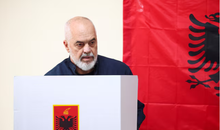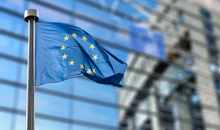
 Flash News
Flash News
71-year-old man from Kamenica found dead, had been reported missing for three days
Tragic accident on the "Ibrahim Rugova" Highway, a woman from Fushë-Kruja loses her life
Justice pardons Xhaçka, Special Appeal decides not to investigate former minister
Berisha evaluates OSCE report: They have ruined the elections
The Supreme Court returns Arbër Veliaj's appeal for retrial
The National Institute of Public Health of Kosovo reports an increase in measles cases due to non-vaccination
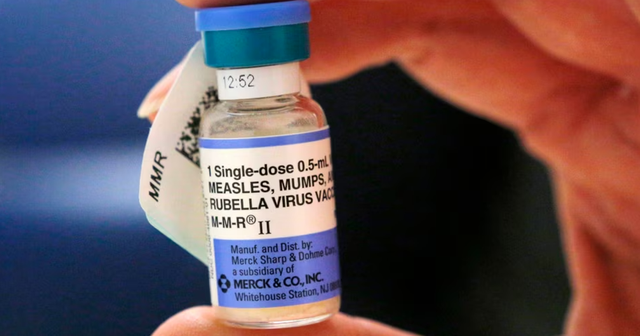
Nine cases of measles were recorded in Kosovo in the second week of May among children aged 1 to 5, the National Institute of Public Health of Kosovo (NIPHK) announced on Wednesday.
The institute announced on Facebook that 4 cases have been reported from Ferizaj; 2 from Shtime and 1 case each from Lipjan, Gracanica and Fushë Kosovë/Kosovo Polje. All cases involve children who have not been vaccinated with the MMR (measles, rubella and mumps) vaccine.
"NIKSHPK warns that this is no longer just about imported cases, but about measles cases that have appeared within the community in Kosovo, directly as a result of non-vaccination," the announcement states.
What is measles?
Measles is an infection caused by a virus and, according to the WHO, is one of the most contagious diseases. It appears as a rash on the skin - initially with spots on the face and behind the ears, which then spread to the chest and back and finally to the legs.
Other symptoms that accompany measles include: fever, dry cough, runny nose, sore throat, and more. The infection occurs in stages, lasting two to three weeks. Measles can be prevented by vaccination, but in certain cases, it can also be a serious or fatal disease.
Earlier this year, the National Institute of Public Health (NIPHK) said that it “was not expected” to have an outbreak of the disease, as the vaccination rate of children against it “is high.” NIPHK says that the vaccination rate against measles in Kosovo is over 90%./ REL
Latest news





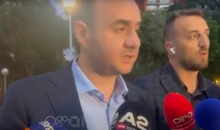
Balliu: This loss affects us all, we'll see where we stand.
2025-05-14 20:32:18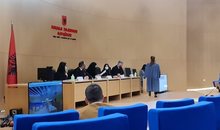

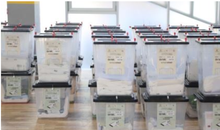
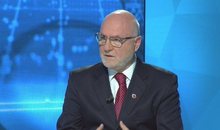
Former diplomat: EU summit, SP propaganda tool
2025-05-14 19:38:55
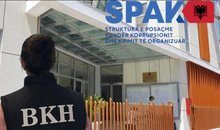

Costa in Podgorica: Montenegro could become an EU member by 2028
2025-05-14 18:46:17
Parties and candidates did not respect media freedom and transparency
2025-05-14 18:42:28

Video/ Heavy traffic at the exit of Tirana, chaos on the Tirana-Durrës highway
2025-05-14 18:09:52

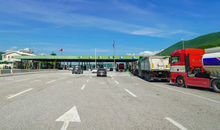


Lapaj reacts after securing 1 mandate: I will make you curse yourself
2025-05-14 17:13:30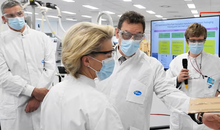
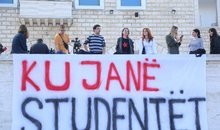
'We have the government we deserve': Students are distrustful of elections
2025-05-14 16:49:42
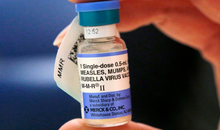




Elections in Albania, DW: Maintaining power through dubious means?
2025-05-14 15:43:10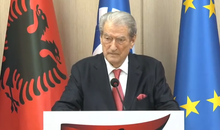

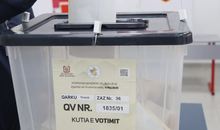
The US should not recognize the rigged elections in Albania
2025-05-14 15:18:14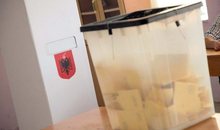
Tension in CEAZ no. 31 in Tirana, vote counting suspended after clashes
2025-05-14 15:13:32

Berisha evaluates OSCE report: They have ruined the elections
2025-05-14 14:45:11
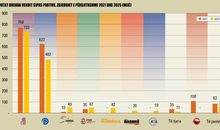
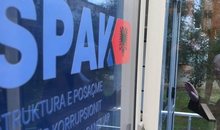
SPAK and BKH action in Shkodra, some escorted for electoral crimes
2025-05-14 14:05:26
This type of food can increase the risk of a deadly disease
2025-05-14 13:54:51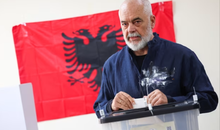
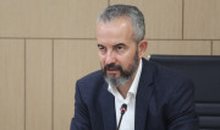
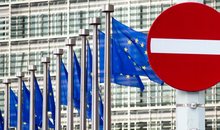
EU adopts new sanctions package against Russia
2025-05-14 13:30:51
Albanians' spending on private education reached 200 million euros in a decade
2025-05-14 13:20:22
The poorest president in the world passes away
2025-05-14 13:10:33
Australia, death toll from melioidosis outbreak in Queensland rises to over 30
2025-05-14 13:01:07
The Supreme Court returns Arbër Veliaj's appeal for retrial
2025-05-14 12:52:25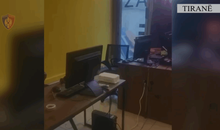
Call Center raided in Tirana/One of the organizers and 6 employees in handcuffs
2025-05-14 12:40:42
Kidnapping and threats in Astir, 29-year-old arrested
2025-05-14 12:34:57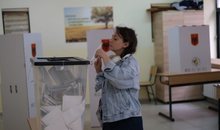
Free and fair? Albania's elections reflect a worrying global trend
2025-05-14 12:28:34
Facebook's Zegjineja also a Member of Parliament
2025-05-14 12:16:40
Diaspora vote, Nuri: Work done by patronage, strong shadows of suspicion
2025-05-14 12:07:33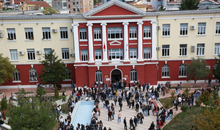

Fight with crowbars and gunfire in Tirana, police official reaction
2025-05-14 11:41:10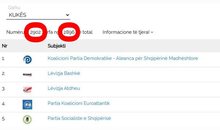
Fraud or manipulation?! Diaspora envelopes in Kukës are increasing by counting
2025-05-14 11:29:48
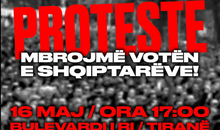
"We protect the vote", Berisha reveals the slogan of the May 16 protest
2025-05-14 11:11:02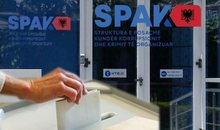
Electoral crime/ SPAK publishes figures: 7 people arrested
2025-05-14 11:03:08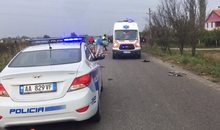
Accident at Tujani Stairs, two young people lose their lives
2025-05-14 10:51:01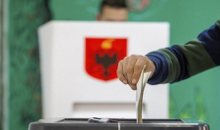
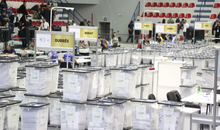
"SP gets 84 mandates", how did Open Data predict the results of May 11?
2025-05-14 10:28:28

Tirana Court Sentences Dan Hutra, Serial Killer of Women, to Life in Prison
2025-05-14 10:10:55
List of MPs that Elbasan is bringing to the Assembly
2025-05-14 10:01:46
"Zjerm" leads Albania to the Eurovision 2025 final
2025-05-14 09:50:29

New parties open a window to Parliament for the first time
2025-05-14 09:31:45
Rama delivers a speech at Skanderbeg Square today
2025-05-14 09:31:34
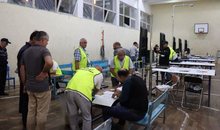
Shkëlqim Shehu wins mandate, most voted in Kukës from DP
2025-05-14 09:11:58
Votes for candidates, names from the open list entering the Assembly in Lezha
2025-05-14 09:03:23
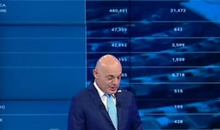
How was the vote stolen in London? Hasjani tells it live
2025-05-14 08:37:52
About 80 thousand envelopes from the diaspora are being counted, results so far
2025-05-14 08:30:37
Foreign exchange/ How much foreign currencies are bought and sold today
2025-05-14 08:13:53

4 cars collide in Tirana, after the accident the drivers fight with levers
2025-05-14 07:58:20
Weather forecast for today
2025-05-14 07:40:35
HOROSCOPE/ Here's what the stars have predicted for each sign
2025-05-14 07:20:57
Morning Post/ In 2 lines: What mattered yesterday in Albania
2025-05-14 07:06:32
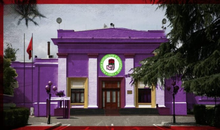
SP towards full legislative control, what does this mean for democracy?
2025-05-13 22:36:52
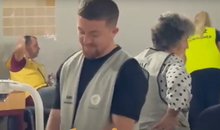
'Braçeee, Braçeee', the counter grabs the attention of CEAZ 5, laughter erupts
2025-05-13 21:55:09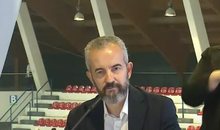
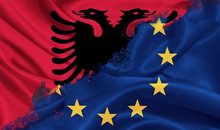
Tirana hosts European leaders on May 16, summit agenda revealed
2025-05-13 21:11:22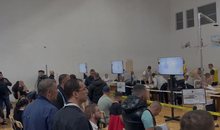
Counting closes in Vlora, PS gets 9 mandates, DP remains with 3
2025-05-13 20:59:14
DP representative at the CEC: SP votes in the diaspora, filled by the same hand
2025-05-13 20:50:55
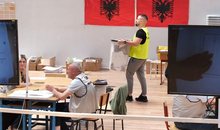
BIRN: European Union concerned about violation of electoral standards in Albania
2025-05-13 20:21:37
A house for a vote? Soft loans for the administration before the elections
2025-05-13 20:10:01
DP-ASHM secures two mandates in Kukës, Isuf Çelaj the most preferred voter
2025-05-13 20:01:22
Poll/ Were the May 11 elections fair?
2025-05-13 19:27:22
Elections 2025/ Counting of diaspora votes continues, results
2025-05-13 19:21:11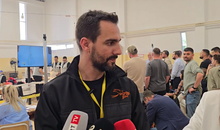
Lapaj: We are close to a mandate in Fier, we will take it from the SP
2025-05-13 19:17:33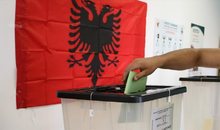
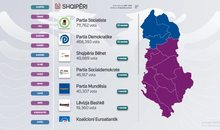
82 mandates, a reward for what?
2025-05-13 18:36:46
International cyber fraud network hit, seizures and checks in Tirana
2025-05-13 18:17:08